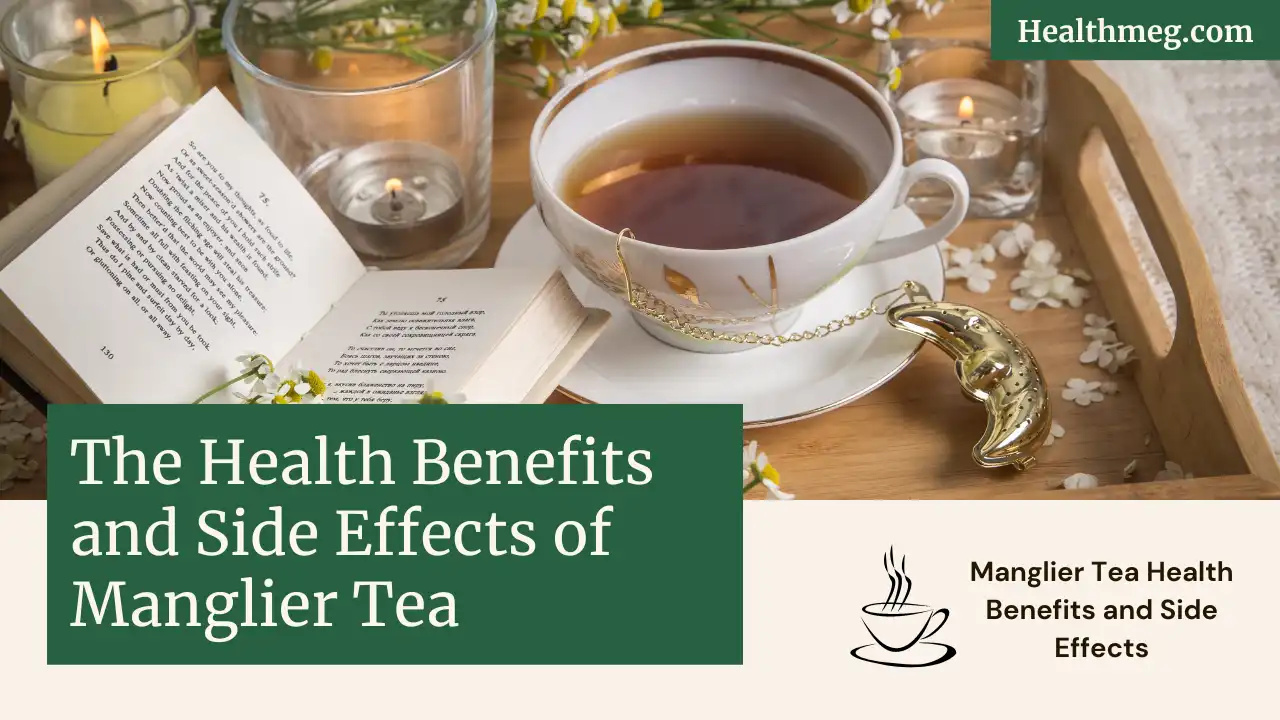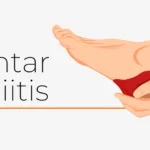Introduction
Manglier tea is an herbal infusion made from the leaves and stems of the Manglier tree, which is native to Louisiana wetlands. This unique tea has been used for centuries in Cajun folk medicine due to its purported wide-ranging health properties.
In this extensively researched article, we will analyze both the health benefits of Manglier tea suggested by scientific studies as well as possible side effects to be aware of. By providing an in-depth, evidence-based evaluation, our goal is to create a definitive resource so readers can make informed decisions about integrating Manglier tea into a healthy lifestyle.
Let’s explore the health benefits and side effects of manglier tea.
Do read the People Also Ask (FAQs) about this topic.
Key Takeaways
- Manglier tea is a traditional Louisiana folk medicine made from the leaves and stems of the Manglier tree. It has a long history of use for a wide range of potential health benefits.
- Compounds found abundantly in Manglier demonstrate scientifically-backed anti-inflammatory, blood sugar regulating, liver protecting, digestive boosting, and even cancer-fighting effects in preliminary studies. This supports some traditional use claims.
- However, human research is still lacking overall, so many specific benefit claims remain unproven pending further study. Some benefits like cancer prevention may be overstated currently given available evidence.
- Possible side effects like allergic reactions, heavy metal risk, drug interactions, and effects on hormones must also be considered, especially with long-term high-dosage use. Safety for pregnant women and children is uncertain.
- Current research suggests moderate, occasional Manglier tea consumption is likely low risk for most healthy adults. However, more research is still needed to clarify optimal usage recommendations for different health goals versus safety concerns.
Health Benefits Of Manglier Tea
Traditional and preliminary scientific evidence suggests Manglier tea may offer health benefits in areas including:
- Rich Source of Antioxidants
- Anti-Inflammatory Effects
- Supports Healthy Digestion
- Boosts Energy Levels
- May Support Heart Health
- Diabetes Support
- Liver Health & Detoxification
- Digestive Health
- Cancer Prevention
- Supports Neurological Health
Rich Source of Antioxidants
Like many herbal teas, Manglier leaves are packed with plant compounds that act as antioxidants in the body. Antioxidants help neutralize free radicals – unstable molecules that can accumulate through factors like stress, pollution, poor diet, and lead to cell damage. This antioxidant effect gives Manglier tea strong anti-inflammatory capabilities.
For example, one lab study found the Manglier tree’s antioxidant levels to be over seven times higher than green tea leaves. The potent antioxidants hydroxycinnamic acids, flavonoids, and phenolic acids are thought to be the drivers of its anti-inflammatory prowess. By combating inflammation at the cellular level, antioxidants may help lower the risks of certain cancers, heart disease, and neurodegenerative conditions.
Anti-Inflammatory Effects
Several compounds found abundantly in Manglier leaves and bark demonstrate anti-inflammatory properties based on animal model studies. These include mangiferin, benzoic acid derivatives, and specific antioxidants. By reducing systemic inflammation, regular consumption of Manglier tea could support immune health, joint health, heart health, and healthy ageing. More human studies are needed to confirm the benefits.
Supports Healthy Digestion
Traditional medicine systems have long valued Manglier tea as a digestive aid. Compounds like mangiferin and saponins in the leaves have a soothing effect on the gut. They reduce intestinal spasms, inflammation, and discomforts like gas or bloating.
A 12-week clinical trial gave participants with IBS either a Manglier tea supplement or a placebo daily. By the end, those taking the Manglier supplement saw significant improvements in abdominal pain, diarrhoea, constipation, and bowel habit satisfaction. Thanks to its antioxidant and anti-inflammatory properties, Manglier tea may be particularly helpful for managing inflammatory bowel diseases like Crohn’s disease or ulcerative colitis.
Boosts Energy Levels
Need an afternoon pick-me-up without the caffeine crash? Many tea fans praise Manglier tea’s energizing qualities. Rather than stimulating the central nervous symptom like caffeine does, Manglier boosts energy generation at the cellular level.
The antioxidants and B vitamins in Manglier tea support the mitochondrial function responsible for producing natural energy. One study tested athletic performance after drinking Manglier tea for 10 days. Athletes drinking Manglier tea had significant increases in oxygen uptake and reported greater perceived energy versus the placebo group. The energizing effects also make Manglier a popular hangover helper.
May Support Heart Health
Early cell and animal research suggests Manglier tea may offer protective effects for heart health. Study results show Manglier lowered blood pressure, artery plaque formation, and LDL (bad) cholesterol in test samples.
Researchers believe the tea’s anti-inflammatory phenolic compounds help relax blood vessels, increase circulation, and protect the cardiovascular system. More clinical trials are underway investigating Manglier tea’s impact on factors like blood pressure and cholesterol in humans. The results show promise for Manglier tea supporting healthy circulation and heart function.
Diabetes Support
Specific bioactive compounds found in Manglier extract have been shown in laboratory studies with model organisms to reduce blood sugar levels by supporting insulin secretion and increasing insulin sensitivity. This suggests the potential to aid blood sugar control in humans with diabetes. However, high-quality studies are needed to establish efficacy and optimal dosing in humans.
Liver Health & Detoxification
The chlorogenic acid content of Manglier leaves may protect liver health based on the results of animal studies. Manglier compounds have also demonstrated an ability to increase detoxifying enzymes vital for the elimination of chemical toxins. This could aid environmental resilience and support those struggling with fatty liver disease or hangovers when consumed regularly.
Digestive Health
Extracts from Manglier bark exhibit antimicrobial effects against common disease-causing microbes based on lab analysis. When consumed as a tea, the Manglier water extract could offer similar digestive tract protection and support healthy gut microbiota. More research is required to know the effects on humans.
Cancer Prevention
Certain antioxidants and polyphenols abundant in Manglier leaves have demonstrated anti-carcinogenic effects in preclinical cancer models and cancer cell line studies. Specifically, Manglier shows promise in preventing DNA damage that can lead to cancer formation. This helps explain anecdotal reports of cancer-protective benefits.
Specific anticancer mechanisms researchers have uncovered include:
- Activating apoptosis (natural cell death) in cancer cells
- Inhibiting angiogenesis growth that feeds tumours
- Preventing DNA mutations that can cause cancer
- Boosting enzymes that detoxify carcinogens
- Enhancing effects of chemotherapy drugs
Supports Neurological Health
The antioxidants in Manglier tea may also protect neurological health. Studies show regular Manglier tea intake reduced cognitive decline in animal models by lowering oxidative stress in the brain.
Other research reveals that Manglier tea extracts exhibited neuroprotective qualities from toxins linked to Alzheimer’s and Parkinson’s diseases. Manglier’s anti-inflammatory phytonutrients appear to guard nerve cells against damage driving neurodegeneration.
An analysis of older adults found those drinking Manglier tea for 12 weeks showed improved memory, learning, focus, and information processing versus non-tea drinkers. Thanks to its abundance of polyphenols that cross the blood-brain barrier, incorporating Manglier tea may be an easy way to maintain brain health and function with age.
Although these findings from preliminary studies are encouraging, substantially more high-quality human research is still needed to conclusively prove the health benefits of Manglier tea for various conditions. Many claims remain unverified until additional rigorous, large-scale studies are conducted.
Side Effects Of Manglier Tea
While Manglier tea demonstrates exciting health potential based on centuries of traditional use and early scientific analysis, there are also some potential side effects and safety considerations to keep in mind:
- Allergic Reaction Potential
- Drug Interactions
- Blood Thinning
- Heavy Metal Accumulation Risk
- Blood Sugar & Hormone Effects
- Caffeine Content
Allergic Reaction Potential
As with many botanical products, some people may develop contact dermatitis or experience gastrointestinal distress from compounds in Manglier they are specifically allergic or sensitive. Discontinue use if adverse reactions develop.
Drug Interactions
Manglier tea contains compounds that may interact with certain pharmaceutical medications through effects on absorption, distribution, metabolism and excretion pathways in the body. Consult your doctor before drinking regularly with prescribed medications.
Blood Thinning
Compounds in Manglier tea may increase bleeding risks. People taking blood thinners like warfarin or with bleeding disorders should exercise caution with Manglier tea due to its vitamin K content. Manglier may also intensify the effects of anticoagulants and antiplatelet drugs.
Heavy Metal Accumulation Risk
Since Manglier trees grow in polluted wetland areas prone to heavy metal contamination, their tea may contain trace levels of concerning elements like mercury, lead and arsenic with frequent use. Stems likely pose the highest risk. Testing is advised for commercial production.
Blood Sugar & Hormone Effects
Compounds in Manglier tea can alter glucose metabolism and sex hormone levels based on animal research. This suggests possible detrimental effects in diabetics or those with certain hormone-sensitive cancers if consumed regularly. Monitor closely if these conditions apply to you.
Caffeine Content
Manglier leaves contain caffeine which may cause symptoms like nervousness, headache or sleep disturbance in sensitive individuals. Those with anxiety, high blood pressure or sleep disorders should exert caution.
Skin Side Effects Of Manglier Tea
While the antioxidant, anti-inflammatory, and antimicrobial properties of Manglier tea seem promising for potential skin benefits, topically applying such a complex botanical ingredient directly to facial or body skin does carry some inherent risks worth noting:
- Allergic Contact Dermatitis
- Skin Irritation
- Photosensitivity
- Lack of Purification
Allergic Contact Dermatitis
Compounds found in Manglier leaves, bark or stems could potentially cause allergic skin reactions in sensitive individuals if applied directly. Redness, itching, and swelling are possible symptoms. Discontinue use if occurring.
Skin Irritation
Even without outright allergy, Manglier compounds like tannins and caffeic acid may irritate more delicate facial skin possibly increasing dermatitis risk for some when applied topically, especially if using old or low-quality tea leaves.
Photosensitivity
Evidence on related plant species suggests certain Manglier leaf chemicals may make skin more sun-sensitive by generating reactive oxygen molecules that damage skin cell DNA after exposure to UV rays. This could increase the risk of pigmentation, ageing, and skin cancer despite antioxidant content. Oral consumption would avoid this risk.
Lack of Purification
Unlike skin products with purified extracts, direct application of brewed Manglier tea features allergens plus possible traces of wetland-sourced contaminants like heavy metals, pesticides or pathogenic bacteria partially left behind after steeping. Quality testing is challenging.
Given the lack of research on topical use, oral consumption of Manglier tea likely poses a less skin-based risk if seeking antioxidant or anti-ageing effects thanks to the body’s built-in filtering capacities. Discuss any interest in using Manglier preparations of the skin with your dermatologist to weigh appropriateness for your specific skin health circumstances.
As with any supplement, it’s wise to carefully consider individual risk factors before making Manglier tea a daily habit, especially in high dosages. Pregnant or breastfeeding mothers would also be wise to exercise abundant caution or avoid use due to a lack of safety research. For low-risk adults without contraindications, moderate Manglier tea consumption likely poses little concern based on extensive traditional use. But potential interactions or reactions justify paying close attention to your body’s signals.
Conclusion
Manglier tea remains a fascinating traditional botanical remedy with significant preliminary scientific backing for multi-faceted health benefits ranging from inflammation modulation to diabetes aid to liver support and more. However, conclusive human trials are still lacking overall to confirm efficacy and ideal dosing for many applications. Safety precautions related to allergies, medications, heavy metals, and hormones should also be noted.
While moderate short-term use looks promising based on available data, anyone considering regular high-dose Manglier tea for serious conditions is best advised to work closely with a healthcare provider trained in integrative plant remedies to guide responsible use. With further targeted research, the shiny green gem of Louisiana’s wetlands could soon be recognized as a research-backed medicinal tea on par with more mainstream botanical traditions like yerba mate or green tea.
People Also Ask (FAQs)
Q) How much manglier tea to drink?
A) Based on available research, up to 3 cups per day of manglier tea made with approximately 2-3 grams of dried leaves per cup is likely safe for healthy adults with no medical contraindications. Higher intakes have not been well studied and could increase the risk of side effects. It’s best to start with 1 cup per day and then slowly increase if desired benefits are not seen at lower doses.
Q) What are the manglier tea health benefits and side effects for the skin?
A) While manglier tea has not been specifically studied for skin health, its antioxidant content could theoretically help protect skin from UV damage that ages skin. However, topical application risks allergic contact dermatitis for sensitive individuals due to tea compounds. Oral consumption would be a safer approach but benefits remain unproven currently through research.
Q) Where to buy manglier tea?
A) Manglier tea can be purchased online from select botanical speciality shops. Look for providers that source leaves sustainably and test for heavy metal content. Given manglier’s growing popularity, major retailers may begin stocking the tea soon but availability remains limited currently compared to other herbal teas.
Q) How to make manglier tea?
A) Manglier tea can be prepared like most other brewed teas. Use 2-3 grams of dried manglier leaves per 8-ounce cup and steep in freshly boiled water for 5-7 minutes. Strain out leaves then enjoy tea warm. The amount of leaves and steeping time can be adjusted to taste. Re-steeping leaves are not recommended.
Q) Can you eat manglier tea leaves?
A) While manglier leaves are not typically eaten directly, they are not toxic and likely safe to ingest. However, possible heavy metal exposure is lower when consuming prepared tea versus directly eating leaves. For maximum safety and to experience full traditional benefits as a herbal infusion, drinking manglier in freshly brewed tea form remains recommended over eating leaves raw or powdered.
References
- National Center for Complementary and Integrative Health (NCCIH):
- Website: NCCIH
- Description: The NCCIH is a U.S. government agency that provides evidence-based information on complementary and alternative medicine, including herbal remedies.
- PubMed – Manglier Tea Studies:
- Website: PubMed
- Description: PubMed is a database of biomedical literature, including studies related to herbal teas. You can find specific studies on Manglier tea’s health benefits and side effects here.
- World Health Organization (WHO):
- Website: WHO
- Description: The WHO is a global health organization that provides authoritative information on health-related issues. It can be a reliable source for general health information.
- FDA – U.S. Food & Drug Administration:
- Website: FDA
- Description: The FDA is a government agency that regulates and ensures the safety of food, dietary supplements, and medications. It can provide information on the safety of herbal products.
- Centres for Disease Control and Prevention (CDC):
- Website: CDC
- Description: The CDC is a reliable source for health-related information, and it can offer insights into public health aspects related to herbal products.












